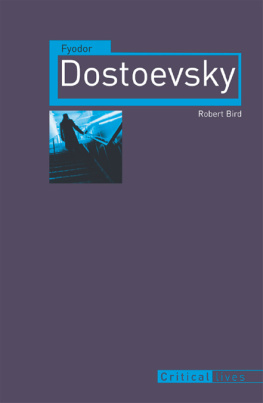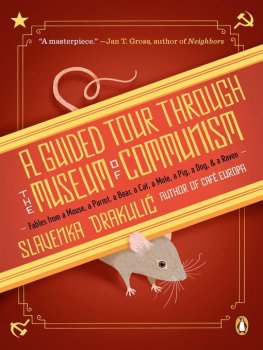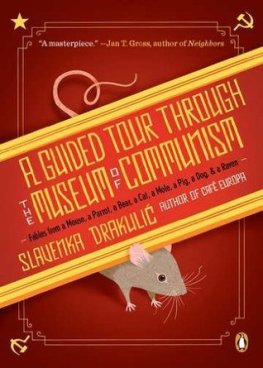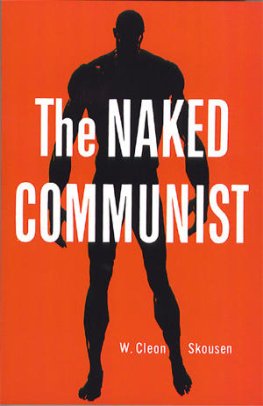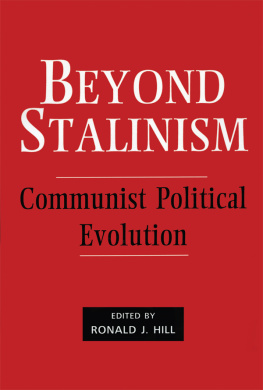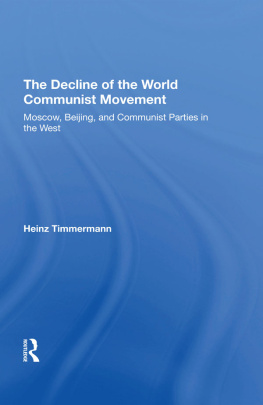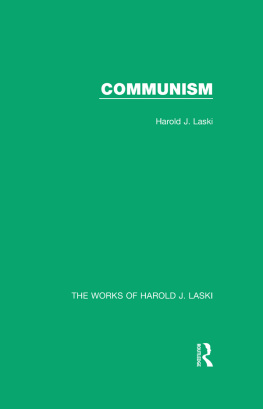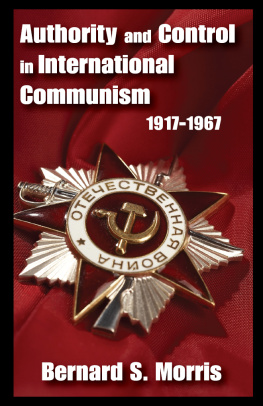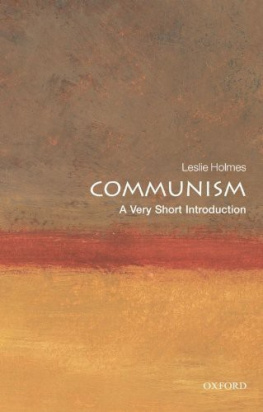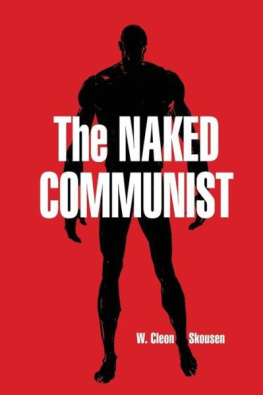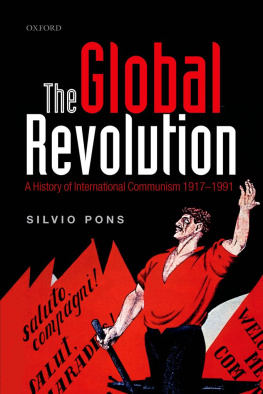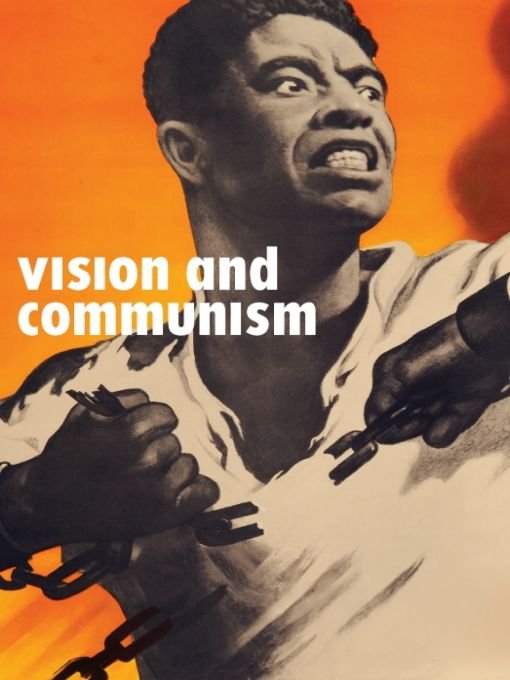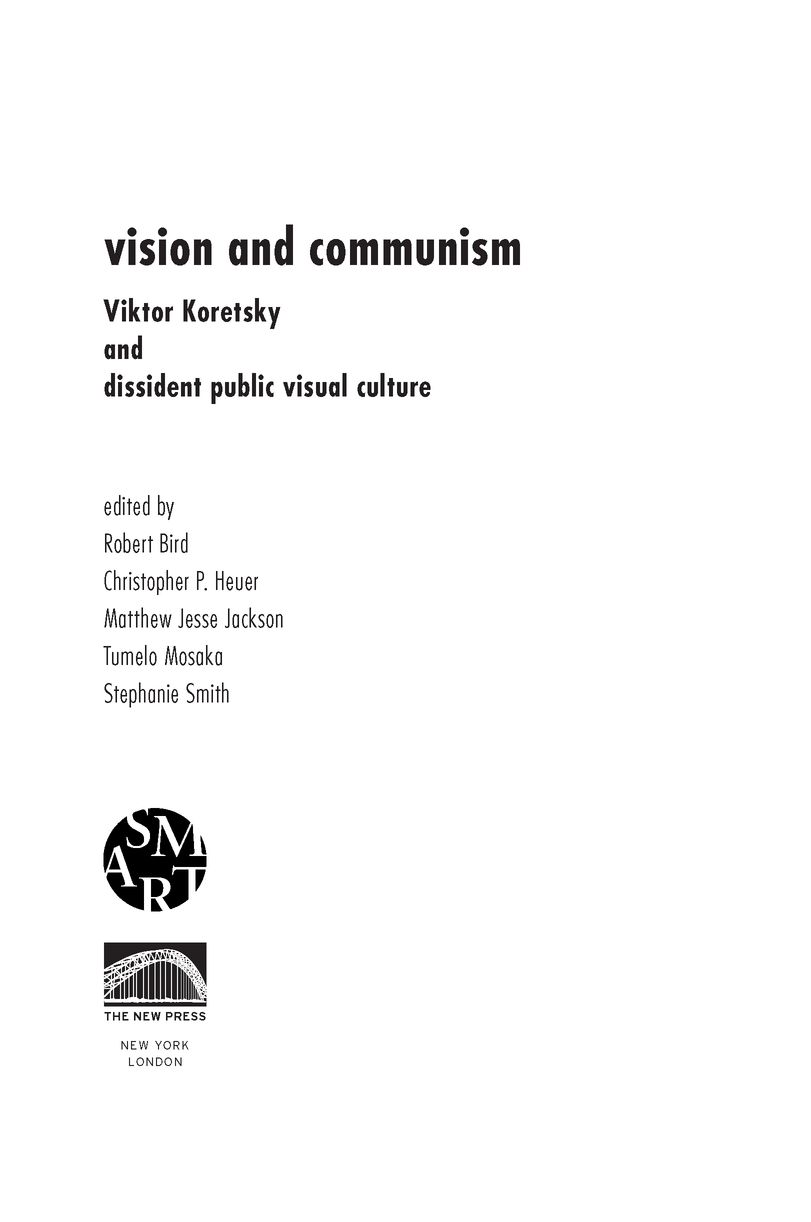Table of Contents
to the memory of David Kato Kisule (1964-2011)
Communism... will always present a mortal danger to mankind. It is like an infection in the worlds organism: it may lie dormant, but it will inevitably attack with a crippling disease. There is no help to be found in the illusion that certain countries possess an immunity to Communism: any country that is free today can be reduced to prostration and complete submission.
-Aleksandr Solzhenitsyn
For many decades communists were the only politicalgroup in South Africa who were prepared to treatAfricans as human beings and their equals; who wereprepared to eat with us; talk with us, live with us,and work with us. They were the only political groupwhich was prepared to work with the Africans for theattainment of political rights and a stake in society.Because of this, there are many Africans who, today,tend to equate freedom with communism.
-Nelson Mandela
foreword
The project Vision and Communism arose out of a desire to introduce the work of Viktor Koretsky (1909-1998), a master of Soviet propaganda imagery, to audiences unacquainted with his poster designs and the underlying approach that guided his aesthetic choices. While great attention has already been paid to the artistic production of the Russian Revolution and its aftermath, later Soviet material has received much less study. The exhibition at the Smart Museum and this catalogue contain some pre-World War II images from the Soviet Union, but the largest share of Koretskys work parallels the struggles for independence and civil rights around the world in the decades following World War II and the inception of the Cold War. The works indicate the complexity and ambition of the aesthetic and ideological challenges Koretsky set for himself, and his poster designs demonstrate how adroitly he responded. Koretskys powerful images force us to reexamine many long-unchallenged assumptions about the meanings and intent of this work.
The collaborative team involved with this project has responded to the issues raised in consideration of Koretskys art and the communist vision with a wide-ranging body of texts in this catalogue, and an innovative sound concept in the exhibition. Their conversations have extended to a consideration of South African protest music, which is discussed here and will be presented in the museums galleries as a counterpart to the ideology of shared struggle against injustice and inequality that animates much of Koretskys work. The teams conversations also led them to the films of Chris Marker (1921-) and Aleksandr Medvedkin (1900-1989), a French filmmaker and a Russian filmmaker, respectively. Conceived as part of the exhibition programming, the series will be shown at the University of Chicagos Film Studies Center.
The thoughtful and fruitful cross-disciplinary discussions between a team of faculty members and curators at the University of Chicago and other institutions included Anna Loginova, the curator of the Ne boltai! Collection, the source of the materials presented in the exhibition. It is a rare opportunity indeed to be able to mine a great yet little-known archive containing a rich array of unfamiliar, challenging, and fascinating objects. Without Annas boundless help, good cheer, profound knowledge, and generosity, this project could not have come to fruition. We are deeply grateful both to her and to the Ne boltai! Collection. At the University of Chicago, Matthew Jesse Jackson, Associate Professor in the Departments of Art History and Visual Arts, established the key premise that Koretskys art represented the not seen, and it was he who invited the partners who might most interestingly be involved in the project. Robert Bird, Associate Professor in the Departments of Slavic Languages and Literatures and Cinema and Media Studies, added his considerable energy and passion to the project in its earliest stages and has been a constant source of support. Christopher P. Heuer, Assistant Professor of Art and Archaeology at Princeton University, joined the effort enthusiastically, and finally, Tumelo Mosaka, Curator of Contemporary Art at the Krannert Art Museum at the University of Illinois, UrbanaChampaign, lent his perspective on South African protest songs.
At the Smart Museum, Stephanie Smith, Deputy Director and Chief Curator as well as a contributor to this publication, guided her colleagues through the complex evolution of a provocative project that intends to challenge its audiences even as Koretskys work itself does. Richard Born, the Smarts Senior Curator, contributed much to these conversations and is serving as coordinating curator of the exhibition as well as consulting curator of an important companion exhibition, Process and Artistry of the Soviet Vanguard, for which the guest curator is Kimberly Mims, an advanced graduate student in the University of Chicagos Department of Art History. One must also acknowledge the significant contributions of Kristy Peterson, the Smart Museums Director of Education, Angela Steinmetz, Head Registrar, Rudy Bernal, Chief Preparator, and Ray Klemchuk, Assistant Preparator, as well as Bhavisha Panchia, Tumelo Mosakas research assistant, and the sound designer for his soundscape in the exhibition, Jason Finkelman. And, of course, Marc Favreau and his team at The New Press have been invaluable colleagues as the editor and publisher of this catalogue, which stands alone as a work of scholarship, but also serves to enrich the experience of any visitor to the exhibition.
Fortuitously, the interest in the work of Viktor Koretsky at the Smart Museum coincided with what became a remarkable collaborative citywide festival known as The Soviet Arts Experience. Launched by the University of Chicago in 2010, the festival came to include twenty-six music, theater, art, and dance organizations presenting work over a sixteen-month period. Among these presentations were exhibitions at the Art Institute of Chicago, the Mary and Leigh Block Museum of Art at Northwestern University, and the University of Chicago Librarys Special Collections Research Center, the latter organized by a group of students drawn from a range of departments under the guidance of Robert Bird.
The result offers one of the richest opportunities imaginable to consider the arts produced for and in response to the Soviet system. Among the array of exhibitions, concerts, plays, dance performances, lectures, and other events included in the festival, the art of Viktor Koretsky stands out as offering some of the most intriguing and challenging material of all, partly because of the way in which the project team has chosen to present it in the exhibition at the Smart Museum. It is a pleasure now to be able to display this unfamiliar and provocative work in a way that challenges and stimulates audiences to join the rich intellectual discourse this work has already engendered among those who have been privileged to participate in the development of Vision and Communism. We hope that this effort generates further discussions and stimulates new thinking about the art produced for the Soviet regime, its purposes and meanings, and the larger questions confronted by Viktor Koretsky in his work.
Anthony Hirschel
Dana Feitler Director
Smart Museum of Art
University of Chicago


